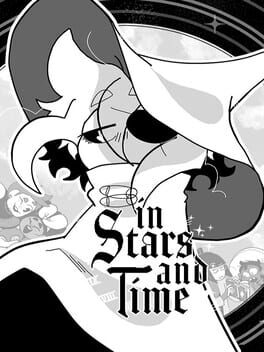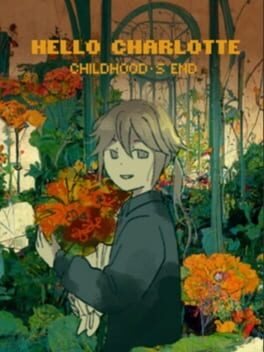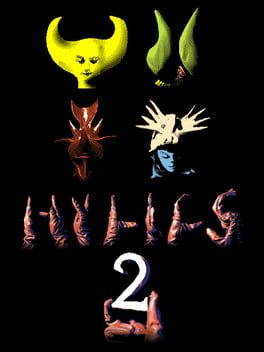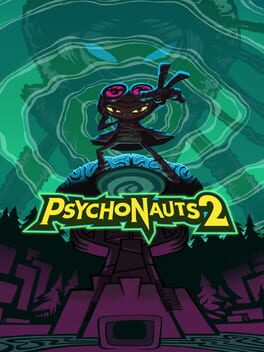Blue86
6 reviews liked by Blue86
In Stars and Time
2023
YOU LIKE WORDS?! YOU LIKE WHEN CHARACTERS TALK ABOUT THINGS AND STUFF AND YOU CLICK ON THINGS AND THEY SAY SOMETHING DIFFERENT BECAUSE YOU HAVE A DIFFERENT BAPHMODAD OR THINGAMOWHOZIT OR DID THE ZIPPY FLIPPY EARLIER? THIS GAME IS FOR YOU!
In Stars and Time has a nearly obscene amount of dialogue. Every single interactable in the game has a full-blown conversation tied to it. Dialogue remains quippy, familiar, and very of-the-time, whilst still having a contemporary wit that keeps you wanting to see more. And then you throw in the ways you can change every single dialogue encounter, and you get an absolutely dizzying amount of exposition and conversations about essentially nothing, but one of those conversations will be useful eventually.
This is what Stars and Time is banking on; you enjoying its main conceit - that of a single RPG dungeon that you traverse multiple times with new information each time to contextualize all of its puzzles - and how your characters reveal more about themselves, attempt to, and fail to change with every pass through. It's a massive puzzle box of dialogue where the reward is that you get to spend more time with your friends and care about your friends. And if you like that? The game will just continue giving and giving.
And I don't like that. I LOVE that.
In Stars and Time is glad to twist and pull its characters to the point of breaking, boiling them down to their merest existences as archetypes, ideas, character arcs and gameplay functions, twisting and turning them... but never once forgetting that these are characters. They feel, they believe, and they mean something, and because of that, In Stars and time has a beautiful lot to say about the simple condition of storytelling. The way that Mirabelle, Odile, Isabeau, and Bonnie's stories develop, progress, and regress through the game's runtime is as heartbreaking as it is well-considered and lovely. This is to say nothing of the player character, Siffrin, who just might be my favorite expression of a main character in a very long time; at the very least, I think he plays with the idea of BEING the lead in an incredible way! Watching these journeys slowly come to inevitable conclusions of both dread and catharsis has been one of the most gratifying experiences I've seen.
I realize, at this point in the review, I have done a very bad job explaining what In Stars and Time IS other than "they talk a lot and you navigate a dungeon and you think it's really good when they talk". There is turn-based combat based on a rock-paper-scissors effectiveness system, which is very nicely done and has a great flow to it until it stops mattering entirely halfway through the game and becomes an annoyance most times it shows up. There's some trial and error dungeon navigation that's a bit dull. Sometimes the game's RPG Maker roots show up and you can feel the game rubbing up against the limitations of the system. Sometimes yeah, it can feel like dialogue scenes might be going on a BIT long to emphasize a point. Really, perhaps the biggest issue with In Stars and Time is how every last bit of the game is so dedicated to its core narrative conceit - if you are not in love with what ISaT is selling, it will likely not get any better for you as it over-indulges in its own devices. Everything in this game is tied in to this form of character development and progression... and if you do love that, if this game speaks to you, then it's an unparalleled experience. I was slowed down a bit at times, but this game stunned me in the best of ways, in ways that I would want to write as a writer and love reading and imagining through. It is not a game I can recommend to everyone, but it is a game that I love, think celebrates BEING a game wonderfully, and think if you have even passing interest in, you owe yourself to at least give it the Steam Refund test; it could be something (and I think it IS something) truly special for ya.
In Stars and Time has a nearly obscene amount of dialogue. Every single interactable in the game has a full-blown conversation tied to it. Dialogue remains quippy, familiar, and very of-the-time, whilst still having a contemporary wit that keeps you wanting to see more. And then you throw in the ways you can change every single dialogue encounter, and you get an absolutely dizzying amount of exposition and conversations about essentially nothing, but one of those conversations will be useful eventually.
This is what Stars and Time is banking on; you enjoying its main conceit - that of a single RPG dungeon that you traverse multiple times with new information each time to contextualize all of its puzzles - and how your characters reveal more about themselves, attempt to, and fail to change with every pass through. It's a massive puzzle box of dialogue where the reward is that you get to spend more time with your friends and care about your friends. And if you like that? The game will just continue giving and giving.
And I don't like that. I LOVE that.
In Stars and Time is glad to twist and pull its characters to the point of breaking, boiling them down to their merest existences as archetypes, ideas, character arcs and gameplay functions, twisting and turning them... but never once forgetting that these are characters. They feel, they believe, and they mean something, and because of that, In Stars and time has a beautiful lot to say about the simple condition of storytelling. The way that Mirabelle, Odile, Isabeau, and Bonnie's stories develop, progress, and regress through the game's runtime is as heartbreaking as it is well-considered and lovely. This is to say nothing of the player character, Siffrin, who just might be my favorite expression of a main character in a very long time; at the very least, I think he plays with the idea of BEING the lead in an incredible way! Watching these journeys slowly come to inevitable conclusions of both dread and catharsis has been one of the most gratifying experiences I've seen.
I realize, at this point in the review, I have done a very bad job explaining what In Stars and Time IS other than "they talk a lot and you navigate a dungeon and you think it's really good when they talk". There is turn-based combat based on a rock-paper-scissors effectiveness system, which is very nicely done and has a great flow to it until it stops mattering entirely halfway through the game and becomes an annoyance most times it shows up. There's some trial and error dungeon navigation that's a bit dull. Sometimes the game's RPG Maker roots show up and you can feel the game rubbing up against the limitations of the system. Sometimes yeah, it can feel like dialogue scenes might be going on a BIT long to emphasize a point. Really, perhaps the biggest issue with In Stars and Time is how every last bit of the game is so dedicated to its core narrative conceit - if you are not in love with what ISaT is selling, it will likely not get any better for you as it over-indulges in its own devices. Everything in this game is tied in to this form of character development and progression... and if you do love that, if this game speaks to you, then it's an unparalleled experience. I was slowed down a bit at times, but this game stunned me in the best of ways, in ways that I would want to write as a writer and love reading and imagining through. It is not a game I can recommend to everyone, but it is a game that I love, think celebrates BEING a game wonderfully, and think if you have even passing interest in, you owe yourself to at least give it the Steam Refund test; it could be something (and I think it IS something) truly special for ya.
I usually don't think about rewriting things on here, but my prior HC3 review is currently the most liked one on this page and, Unfortunately, one that I have a deep embarrassment towards. Not that I didn't speak my truth, but lots of time has passed since my first interaction with the game, and my words on it were much more of a riposte of the thought-cyclone the game left me with than anything, like, substantial. And frankly, the feeling I get when I receive a notif about it, that someone assumes I still ride with those thoughts is - boy, no wonder I gave this shit a 5 - enough to coax a second try out of me. After all, as I said in my old review, to confine it to one conclusion would do it a disservice (though now I mean that in a more direct way than I ever did before, lol).
As far as more formal things go (character depth, conciseness, visual splendor) it could be argued that etherane has outdone HellChar 3 a few times by now, but to be honest, the more I sit with it, the more I think the circumstance of Hello Charlotte as a series is a worthwhile feature more than any kind of problem. Playing HC1 and casting it off as a study of RPGMaker more than a developed game in and of itself feels almost necessary to eventually get to the part where HC3 throttles some purple and blue into your cheeks. To put it more directly: even if I didn't see myself in it (which I do), I still think it's incredibly worthwhile to see this rare glimpse into the game creator's artistic trajectory.
What makes this game part of that trajectory, let alone the extremum of it? Well, with all its internet-coded self-reflection, the nihilistic lashouts at just about every aspect of the game as an object/piece of entertainment, the audience as a collective entity (crucially, the audience of people who were there at the time of HC3's release, who played HC2 and asked, "please may I have some more"), and the ensuing story as the byproduct of an intellectually and emotionally laborious creative process. It works through that initial stage of self-awareness games this metafictionally occupied have and into a world of razor-thin separations between idea and story. And none of this is strictly contemptuous, but etherane does not mince words and speaks to certain things so directly that the aforementioned separation of fiction is liable to break down, if only for a moment. (I believe the less-nice way of saying this is "preachy", but stick with me)
Hello Charlotte always has been very artificial as a fiction, but here its worldstate is so rebellious that it's a wonder any coherency occurs. Though, I will say, the conceptualization of creator and creation here is perhaps more vital and centers more than that explanation leads on, and there's a layer of, for lack of a better term, knowing bratiness that IS SO IMPORTANT TO INTERNALIZE by the end or else you'd just fuckin' hate this shit. But, even then, these things are likely to someone's distaste (understandably so) given how brash and just straight up trying it all can be at the best of moments.
BUT, that's the thing, and I'm gonna just come out and say it, HC3's rigor and vulnerability remain unmatched in the space of games, even in the rolling wake of personal games or w/e tag you'd ascribe to them. It has a pinpoint line of sight to the core of tumblr's now-ruinous identity and truth politics and proceeds to shred the Earth's mantle to get there. You could not make this up if you tried - etherane shoveled the trenches of that distinct blog-era mental-to-digital-to-mental anguish and isolation, and the dirt and clay, cracking in the fiery kiln, forms this completely unstable work that cannot be any less angry or confused than it is, lest it fail to... be itself. But it succeeds, and I am so fucking thankful that someone out there spoke to it with such bare intentions, because it's a cultural aftershock that affected me and continues to affect me on multiple levels - I reckon this is at least partially why the game gets such a strong response years after its initial release, because it's prodding the tender points of a life so common among its demographic but also one that's, from my own experience, hard to come to terms with. I've seen some people struggle to understand or even outright despise this game for this, but in my case, there's no way, man. This game got it.
ALSO sneak-attack Heaven's Gate review because I finally played it: so much more than the AU tag gives it credit for, at least in the sense that it doesn't feel at all out of step with anything else in the series. I mean, rigid fiction HellChar is not, so what's a couple of smudged details to stop you from feeling out Charles, Anri, and Vincent as a graduating class? It pretty much sledgehammers the layers of abstraction left in HC and becomes unfettered conversations with these ideologues that the True Realm characters have assumed the roles of. Despite that, though, it's maybe the most natural dialogue of the series and every conversation with these three ends up being just SO emotionally fulfilling and a great treat for those who already liked the sprite versions of them. I guess that is etherane's twisted idea of an AU? God, please miss, just once.
As far as more formal things go (character depth, conciseness, visual splendor) it could be argued that etherane has outdone HellChar 3 a few times by now, but to be honest, the more I sit with it, the more I think the circumstance of Hello Charlotte as a series is a worthwhile feature more than any kind of problem. Playing HC1 and casting it off as a study of RPGMaker more than a developed game in and of itself feels almost necessary to eventually get to the part where HC3 throttles some purple and blue into your cheeks. To put it more directly: even if I didn't see myself in it (which I do), I still think it's incredibly worthwhile to see this rare glimpse into the game creator's artistic trajectory.
What makes this game part of that trajectory, let alone the extremum of it? Well, with all its internet-coded self-reflection, the nihilistic lashouts at just about every aspect of the game as an object/piece of entertainment, the audience as a collective entity (crucially, the audience of people who were there at the time of HC3's release, who played HC2 and asked, "please may I have some more"), and the ensuing story as the byproduct of an intellectually and emotionally laborious creative process. It works through that initial stage of self-awareness games this metafictionally occupied have and into a world of razor-thin separations between idea and story. And none of this is strictly contemptuous, but etherane does not mince words and speaks to certain things so directly that the aforementioned separation of fiction is liable to break down, if only for a moment. (I believe the less-nice way of saying this is "preachy", but stick with me)
Hello Charlotte always has been very artificial as a fiction, but here its worldstate is so rebellious that it's a wonder any coherency occurs. Though, I will say, the conceptualization of creator and creation here is perhaps more vital and centers more than that explanation leads on, and there's a layer of, for lack of a better term, knowing bratiness that IS SO IMPORTANT TO INTERNALIZE by the end or else you'd just fuckin' hate this shit. But, even then, these things are likely to someone's distaste (understandably so) given how brash and just straight up trying it all can be at the best of moments.
BUT, that's the thing, and I'm gonna just come out and say it, HC3's rigor and vulnerability remain unmatched in the space of games, even in the rolling wake of personal games or w/e tag you'd ascribe to them. It has a pinpoint line of sight to the core of tumblr's now-ruinous identity and truth politics and proceeds to shred the Earth's mantle to get there. You could not make this up if you tried - etherane shoveled the trenches of that distinct blog-era mental-to-digital-to-mental anguish and isolation, and the dirt and clay, cracking in the fiery kiln, forms this completely unstable work that cannot be any less angry or confused than it is, lest it fail to... be itself. But it succeeds, and I am so fucking thankful that someone out there spoke to it with such bare intentions, because it's a cultural aftershock that affected me and continues to affect me on multiple levels - I reckon this is at least partially why the game gets such a strong response years after its initial release, because it's prodding the tender points of a life so common among its demographic but also one that's, from my own experience, hard to come to terms with. I've seen some people struggle to understand or even outright despise this game for this, but in my case, there's no way, man. This game got it.
ALSO sneak-attack Heaven's Gate review because I finally played it: so much more than the AU tag gives it credit for, at least in the sense that it doesn't feel at all out of step with anything else in the series. I mean, rigid fiction HellChar is not, so what's a couple of smudged details to stop you from feeling out Charles, Anri, and Vincent as a graduating class? It pretty much sledgehammers the layers of abstraction left in HC and becomes unfettered conversations with these ideologues that the True Realm characters have assumed the roles of. Despite that, though, it's maybe the most natural dialogue of the series and every conversation with these three ends up being just SO emotionally fulfilling and a great treat for those who already liked the sprite versions of them. I guess that is etherane's twisted idea of an AU? God, please miss, just once.
Thorny, vantablack comedy, dripping with its own caustic bitterness. Successfully defines the difference between the pain of intentionally pressing your thumb against a sharp edge and someone else doing it. However, some incredibly clear moments bleed through the cacophony and will probably stick around in my mind for some time. Even a single character like Anri herself will probably cause me to collapse at some point in the near future - looking forward to that.
It might not yours, but Hello Charlotte 0/3 evades my rating scale. It's the messiest shit I've played... ever? To confine it to one conclusion would do a disservice to it, but most importantly to me. I need time with this.
edit: time's up, 5 stars.
It might not yours, but Hello Charlotte 0/3 evades my rating scale. It's the messiest shit I've played... ever? To confine it to one conclusion would do a disservice to it, but most importantly to me. I need time with this.
edit: time's up, 5 stars.
Hylics 2
2020
Psychonauts 2
2021
Messy. People are messy. All of us down to the individual are not without flaws. We are tormented by psychoses induced by our upbringing, by events in our lives experienced or witnessed, by our needs desires and aspirations or by chemical imbalances in our bodies. How we deal with our demons varies. Perhaps we can successfully compartmentalize them. Perhaps we cannot and they overwhelm us. Perhaps we have no will to do so, and they simply run amok. Regardless, people are more complicated than their actions and giving the proper nuance to understanding why people behave the way they do is an impossible task. Yet it can still be a worthy endeavor, even if the result is not as clean
Psychonauts tries to tell a story about messy people. Popular consensus and the fact that I am reviewing a game with ‘2’ at the end of the title would imply they had some degree of success the first time around. I would agree, although it has been many years since I played it, my fading recollection of the 1st game acknowledges that I at least felt the game hit these notes for me. The game was successfully able to perform the novel feat of portraying the contents of the character’s mind as interactable worlds. Somehow, they were able to do this in a way that did not diminish the severity of the themes they were trying to convey of mental illness, trauma, our biased perceptions of reality. Yet they were still able to tailor these experiences to be enjoyable, engaging and amusing to play through.
It was not without its flaws. Particularly the gameplay I remember being lacking. For example, the game is essentially a ‘collectathon’ and while the main things you collect (figments) are cool little sketches that both serve as set pieces as well as informal ways to add details about the person’s psyche you have entered, they are simply not very fun to collect, there are so many scattered around and placed so arbitrarily that picking any that are out of your way feels like a chore than something you would willingly do. But videogames are more than the sum of its individual components. Good gameplay is not why you play Psychonauts, it is merely the way in which the game tricks you into engaging with its story and world (the ‘collectathon’ aspect is mostly optional). And it is the story and world of Psychonauts where it excels.
So why am I talking about the 1st game instead of the 2nd? Mostly, because the sequel was mostly successful at replicating the original. If you enjoyed the first game because of its writing style, its quirky characters, and the novel way it presents people’s mind as worlds, Psychonauts 2 delivers on all these fronts, at least to the standards that I remember. However more importantly I wanted to address where these games differ.
Psychonauts 1 is clean. At least how I remember it. The decaying memory of its story that lingers in my mind. It was a very optimistic take on people and the circumstances that govern their lives. Yes, people have suffered through terrible traumatic experiences, sometimes at the hands of other people. But these traumas can be overcome you can ultimately move on from them and heal. Those that harmed you might not be doing so from a rational state of mind and can be rehabilitated and found to be remorseful. The events of the game resolved into a positive outcome for all involved.
As usual for a sequel the stakes are raised so very much higher. Psychonaut 2’s tale talks of a war still in living memory, the trauma the war invoked, how it broke people, how they grieved over loved ones lost, their regrets, their inability to have made more meaningful change and horrible unforgiveable irreversible things that were done. It is now more selective on how it pushes that optimistic world view. It is no longer possible to present everyone as redeemable.
The result… is messy. Although perhaps appropriately so. Life in general is messy, people are messy. Is it good or bad? Subjective. It’s different. The in-game characters themselves are not sure of what to make of the game’s resolution and I suppose neither am I. Perhaps all it takes to make something work is simply believing it does. I am on the fence if I want to believe.
I recommend this game to everyone who played and enjoyed the 1st game and want more of it. I recommend the 1st game to those who want to experience an approximately 12-hour long story focused game that is quirky, funny, and surprisingly more considered than how it may initially appear. It is a cult classic for a reason.
Psychonauts tries to tell a story about messy people. Popular consensus and the fact that I am reviewing a game with ‘2’ at the end of the title would imply they had some degree of success the first time around. I would agree, although it has been many years since I played it, my fading recollection of the 1st game acknowledges that I at least felt the game hit these notes for me. The game was successfully able to perform the novel feat of portraying the contents of the character’s mind as interactable worlds. Somehow, they were able to do this in a way that did not diminish the severity of the themes they were trying to convey of mental illness, trauma, our biased perceptions of reality. Yet they were still able to tailor these experiences to be enjoyable, engaging and amusing to play through.
It was not without its flaws. Particularly the gameplay I remember being lacking. For example, the game is essentially a ‘collectathon’ and while the main things you collect (figments) are cool little sketches that both serve as set pieces as well as informal ways to add details about the person’s psyche you have entered, they are simply not very fun to collect, there are so many scattered around and placed so arbitrarily that picking any that are out of your way feels like a chore than something you would willingly do. But videogames are more than the sum of its individual components. Good gameplay is not why you play Psychonauts, it is merely the way in which the game tricks you into engaging with its story and world (the ‘collectathon’ aspect is mostly optional). And it is the story and world of Psychonauts where it excels.
So why am I talking about the 1st game instead of the 2nd? Mostly, because the sequel was mostly successful at replicating the original. If you enjoyed the first game because of its writing style, its quirky characters, and the novel way it presents people’s mind as worlds, Psychonauts 2 delivers on all these fronts, at least to the standards that I remember. However more importantly I wanted to address where these games differ.
Psychonauts 1 is clean. At least how I remember it. The decaying memory of its story that lingers in my mind. It was a very optimistic take on people and the circumstances that govern their lives. Yes, people have suffered through terrible traumatic experiences, sometimes at the hands of other people. But these traumas can be overcome you can ultimately move on from them and heal. Those that harmed you might not be doing so from a rational state of mind and can be rehabilitated and found to be remorseful. The events of the game resolved into a positive outcome for all involved.
As usual for a sequel the stakes are raised so very much higher. Psychonaut 2’s tale talks of a war still in living memory, the trauma the war invoked, how it broke people, how they grieved over loved ones lost, their regrets, their inability to have made more meaningful change and horrible unforgiveable irreversible things that were done. It is now more selective on how it pushes that optimistic world view. It is no longer possible to present everyone as redeemable.
The result… is messy. Although perhaps appropriately so. Life in general is messy, people are messy. Is it good or bad? Subjective. It’s different. The in-game characters themselves are not sure of what to make of the game’s resolution and I suppose neither am I. Perhaps all it takes to make something work is simply believing it does. I am on the fence if I want to believe.
I recommend this game to everyone who played and enjoyed the 1st game and want more of it. I recommend the 1st game to those who want to experience an approximately 12-hour long story focused game that is quirky, funny, and surprisingly more considered than how it may initially appear. It is a cult classic for a reason.




